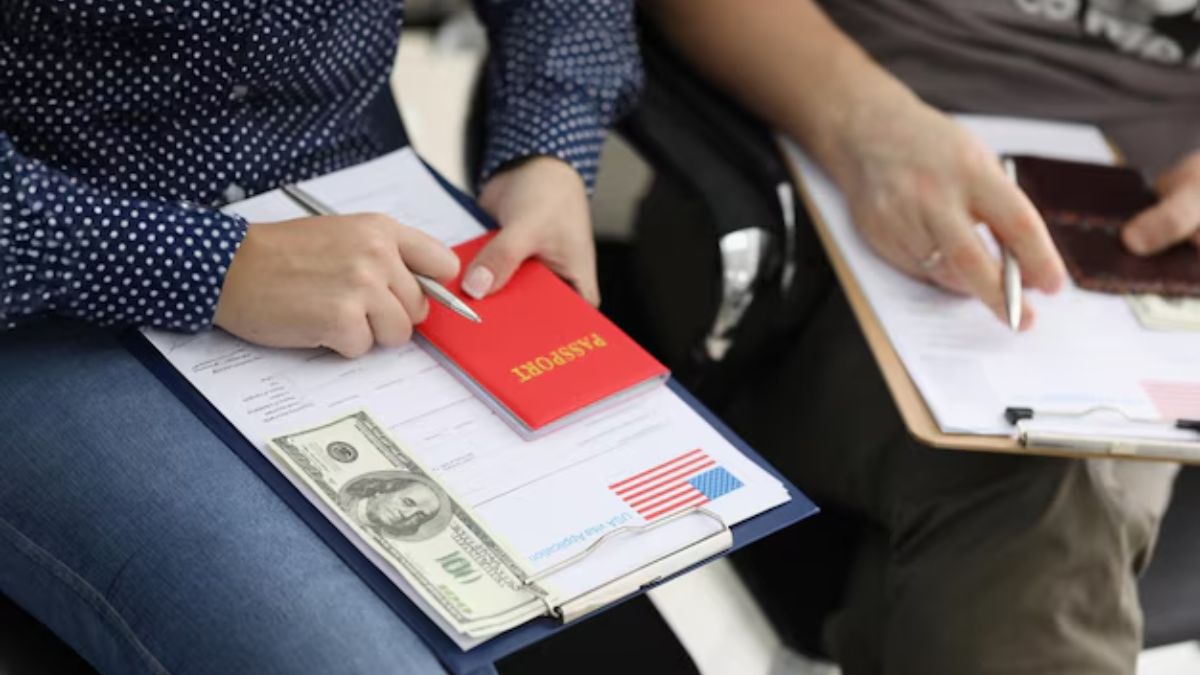New USCIS Policy 2025: The United States Citizenship and Immigration Services (USCIS) released broad changes to the green card for marriage process, making the vetting process stricter and the documentation requirements. The new policy, which took effect on August 1, 2025, covers all new and pending Form I-130 family-based immigrant petitions sponsored by Green Card holders and U.S. citizens. The move is part of a larger initiative to stop immigration fraud, especially in marriage-based petitions, which USCIS indicates have been becoming more and more manipulated. “Fraudulent, frivolous, or otherwise non-meritorious family-based petitions undermine faith in the lawful immigration process,” USCIS wrote in its policy announcement. “We are dedicated to maintaining the integrity of the system.”
What’s New In USCIS Marriage Green Card Process?
Under the new policy, applicants are subject to increased scrutiny and a tougher approval process. The main changes are:
1. Mandatory Face-to-Face Interviews for Most Couples
USCIS will make face-to-face interviews mandatory in almost all marriage-based green card applications. Officers will determine whether a relationship is genuine by conducting in-depth personal questioning.
2. Greater Evidence of True Marriage
Applicants will need to provide strong, verifiable evidence, including:
• Joint bank account and financial records
• Co-signed lease or mortgage documents
• Photographs over time
• Affidavits of friends and relatives
3. Prior Petitions and Immigration Background Review
USCIS will now review earlier petitions filed by the same sponsor or beneficiary to identify patterns of abuse and fraud. For individuals already within the U.S. on other visas (such as H-1B or J-1), immigration background will be scrutinized closely.
Why This Change?
The update makes clear that approval of Form I-130 does not confer legal status or protection from removal. Where an applicant is determined to be removable on other grounds—visa overstay, fraud, criminal record, USCIS may issue a Notice to Appear (NTA) and initiate removal proceedings despite petition approval. As reported by USCIS, the update will “improve officer consistency, enhance national security, and detect malicious intent.” The agency mentioned a number of high-profile cases of fraud to support the policy change. One such case involved Aakash Prakash Makwana, an Indian national who pleaded guilty in May 2025 to marriage fraud. After overstaying his J-1 visa, he submitted forged documents and made false claims of domestic abuse to gain legal residency.
If you’re going to petition for a green card based on marriage, USCIS advises the following:
• Gather clear and convincing evidence of your relationship
• Prepare for a comprehensive in-person interview
• Consult an immigration attorney if you’ve previously overstayed or filed petitions
• Avoid inconsistent or misleading documentation at all costs
ALSO READ: New US Visa Interview Rules Take Effect September 2: What Students, Workers And Tourists Need To Know
Who Is Impacted By New USCIS Rules?
These changes affect:
• US citizens petitioning foreign spouses
• Green Card holders petitioning for immediate family
• Foreign nationals who are already in the U.S. and seeking adjustment of status through marriage
Marriage-based petitions make up almost 40 per cent of all family green card approvals each year, according to USCIS statistics. USCIS has also made clear the circumstances under which the Department of State (DOS) can take petitions directly in embassies—particularly in times of crisis like wars or natural disasters.
